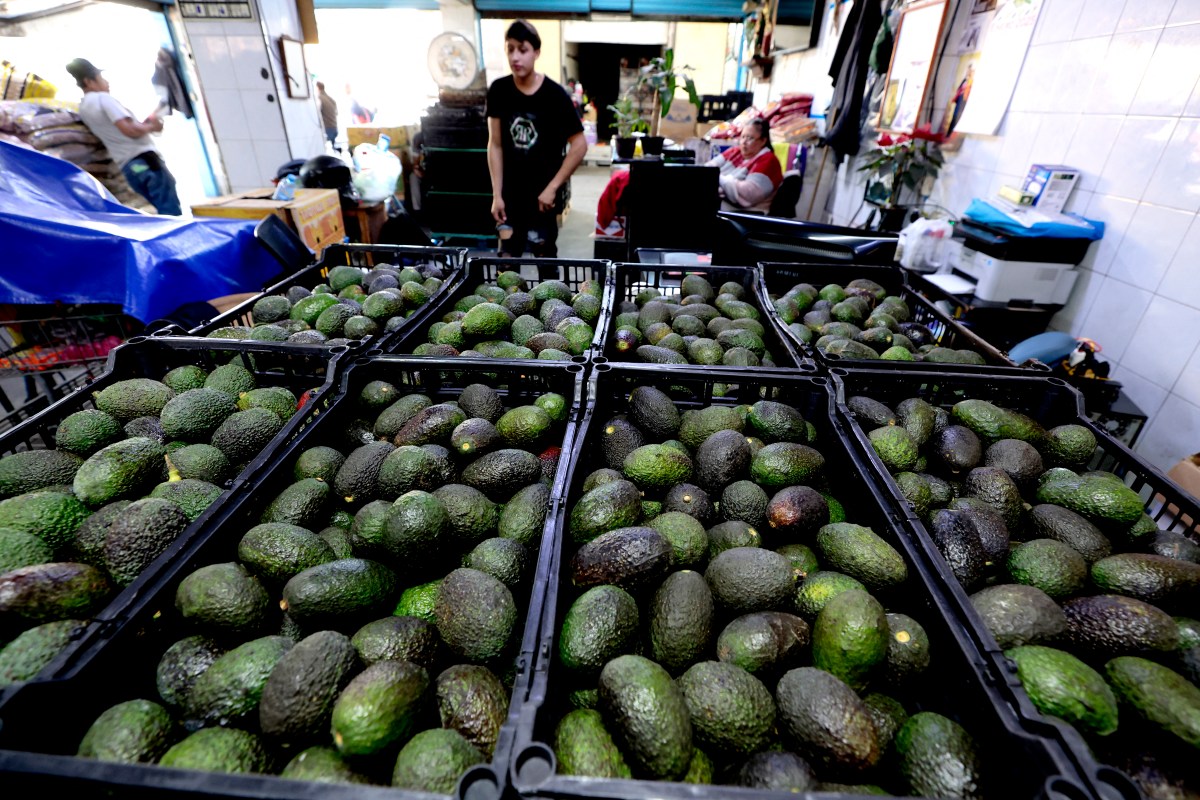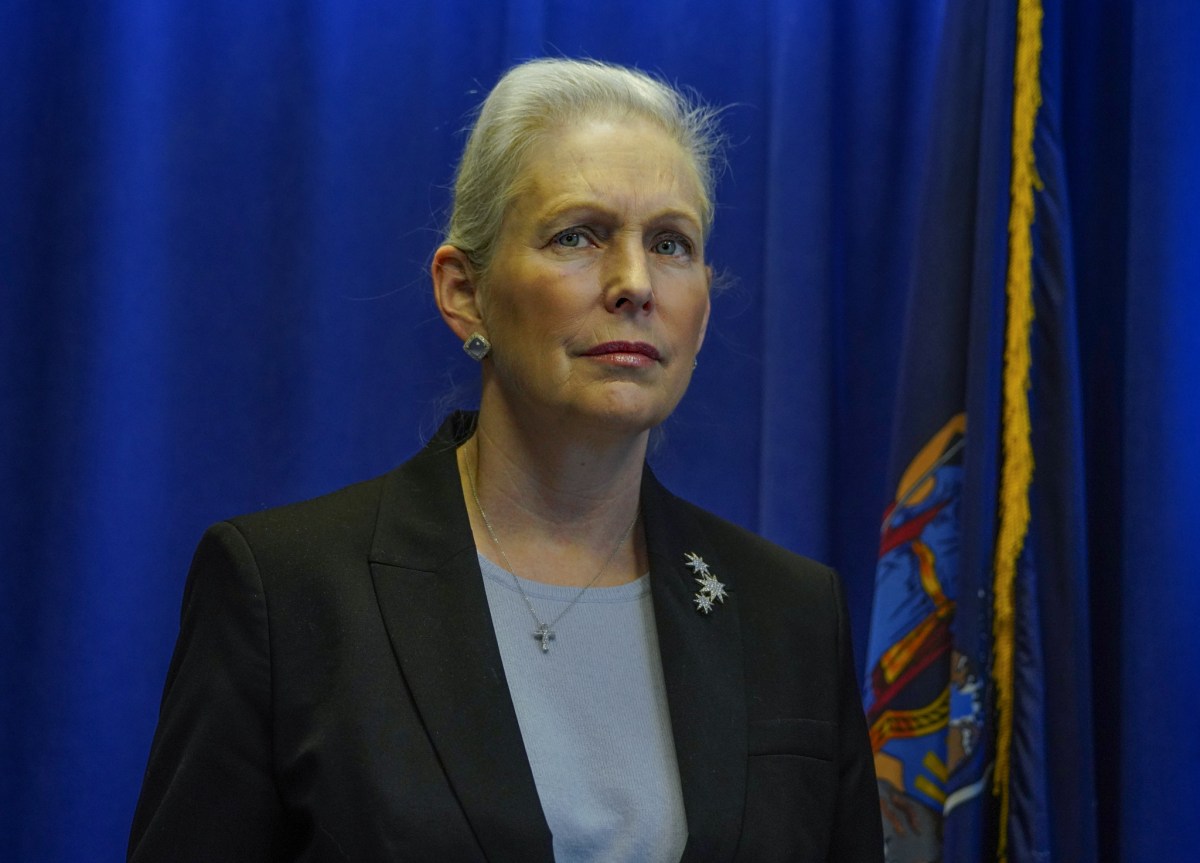President Donald Trump’s tariff will increase on Canada, Mexico, and China applied on Saturday — leading to retaliatory tariff hikes on American exports — threaten to significantly impression each New York shopper with increased prices for nearly the whole lot, native officers warned Sunday.
Fulfilling a promise made throughout his 2024 marketing campaign, Trump levied 25% tariff will increase on imported Canadian and Mexican items — and a ten% tariff hike on Chinese language items — on Feb. 1 through government order. He claimed the transfer was obligatory to extend border safety and cease the unlawful importation of fentanyl.
“Will there be some pain? Yes, maybe (and maybe not!),” Trump mentioned in a Feb. 2 put up on his Reality social media platform. “But we will make America great again, and it will all be worth the price that must be paid. We are a country that is now being run with common sense — and the results will be spectacular!”
Canada and Mexico, nevertheless, responded by imposing tariffs on American items, a maneuver that might lead Trump to order extra tariff will increase. Lots of Canada’s tariff will increase, nevertheless, are focused at states that supported Trump’s re-election in 2024—together with peanut butter from Kentucky, bourbon from Tennessee, and orange juice from Florida.
But New Yorkers will nonetheless really feel the pinch of the upper tariffs on their wallets and pocketbooks on a wide range of items they rely on daily, in response to Senator Kirsten Gillibrand, who known as it “a hot mess.”
“We want to be self-sufficient. We want to make sure our farmers can produce their farm the food they produce and sell to America,” the junior senator from New York mentioned throughout a press convention at her Midtown workplace on Feb. 2. “But most of our farmers in New York and around the country export a lot of their food, even to China. So when you put a tariff up, it means they won’t be able to export the goods they are growing at all, and they’re blocked.”
In the meantime, Queens U.S. Rep. Gregory Meeks, rating member of the Home International Relations Committee, known as the tariff will increase a “lose-lose” state of affairs and mentioned, “Americans will suffer.” He additionally vowed to introduce Home laws aiming to terminate Trump’s self-declared “emergencies” that led to his tariff order, although whether or not these resolutions will cross in a Republican-dominated Congress appears unlikely.
“These tariffs are taxes on consumers and another demonstration of Republicans ripping off Americans in an effort to bankroll Trump’s tax cuts for his billionaire backers,” Meeks mentioned. “Instead of working with Congress to lower costs for Americans, President Trump is abusing the International Emergency Economic Powers Act (IEEPA) to circumvent Congress.”
Throughout a Feb. 2 interview on MSNBC, Gov. Kathy Hochul estimated the elevated tariffs might price New York households as much as $1,400 this 12 months as “an additional tax” on them.
“In a time when I’m working so hard to put money back in New Yorkers pockets, an additional $1,300, $1,400 a year is going to take that money right back out,” she mentioned. “So consumers are the ones who are going to bear the brunt of this, and that’s what concerns me so much.”
Who pays the upper tariffs? First, the importer – after which, you
President Trump was re-elected final November in a marketing campaign dominated by financial points; inflation through the center of the Biden administration despatched the prices of on a regular basis items like eggs and gasoline hovering. But all through a marketing campaign centered on the American financial system, Trump made no secret of his intention to hunt tariff will increase on imported items—a transfer that quite a few financial consultants mentioned would drive up prices even additional. In the meantime, the price of eggs is excessive at present — thanks, largely, to fowl flu. Photograph by Robert Pozarycki
In contrast to taxes, tariffs are imposed when an importer brings items into the nation. Mainly, any firm that imports items at first pays the tariff at customs.
However as soon as these items have handed by means of the ports of entry, you, the buyer, cowl the importers’ tariff prices by means of increased costs for the imported items you’re shopping for. When the tariff goes up, so does the worth of the gadgets you purchase.
Although Trump defined that the upper tariffs on Canada and Mexico aimed to extend border safety, tariffs have been imposed prior to now to guard home industries and lift public income. Nonetheless, tariffs have additionally traditionally elevated costs for items as a result of importers handed on the additional prices to shoppers.
Larger tariffs have additionally brought about financial turmoil at dwelling and overseas. After the inventory market crash of 1929, as an example, Congress and President Herbert Hoover enacted the Smoot-Hawley Act — laws that elevated tariffs on all agricultural imports and lots of manufactured items.
Whereas the act aimed to spur home manufacturing and increase financial exercise, it wound up inflicting different nations around the globe to extend tariffs on American items — hurting already struggling American companies, resulting in a world decline in world commerce, and worsening the consequences of the Nice Despair.
Trump was re-elected final November in a marketing campaign dominated by financial points; inflation through the center of the Biden administration despatched the prices of on a regular basis items like eggs and gasoline hovering. Regardless that inflation reverted to regular charges final 12 months and the job market was sturdy, voters went again to Trump, as polls advised they felt he had a greater grasp on financial issues than his Democratic opponent, then-Vice President Kamala Harris.
But all through a marketing campaign centered on the American financial system, Trump made no secret of his intention to hunt tariff will increase on imported items—a transfer that quite a few financial consultants mentioned would drive up prices even additional.
‘Whatever you expect to buy … is going to go up in price’
 Planning on serving recent guacamole for the Tremendous Bowl? Senator Kirsten Gillibrand says you’re more likely to pay extra for avocados because of President Trump’s 25% tariff of the imported Mexican fruit, and different items.Photograph by ULISES RUIZ/AFP through Getty Photographs
Planning on serving recent guacamole for the Tremendous Bowl? Senator Kirsten Gillibrand says you’re more likely to pay extra for avocados because of President Trump’s 25% tariff of the imported Mexican fruit, and different items.Photograph by ULISES RUIZ/AFP through Getty Photographs
Whereas most imported Canadian items will see a 25% increased tariff, Trump imposed a lesser 10% tariff enhance on imported Canadian power. That would impression New York, provided that the Empire State imports 10% of its power from Canada.
In line with a 2024 report from the Canadian Consulate Common, New York imports $22.8 billion in items from Canada, a 3rd of that are minerals and metals (pearls, gems, valuable metals, jewellery, aluminum), adopted by agriculture at 13% and power and transportation at 10% every.
Commerce with Canada, the consulate basic’s report famous, helps assist 520,600 jobs in New York.
The Empire State additionally exports $29.8 billion price of products to Canada, together with greater than $10.3 billion price of companies within the monetary and enterprise sectors.
As for Mexico, commerce with New York was mutual in 2023, with $3.5 billion in imports and exports change. The Mexican Embassy reported that the majority of New York’s imports from Mexico embody drinks, electrical gear and elements, computer systems, plastic merchandise and navigational, medical and management devices.
However, New York sends merchandise to Mexico, together with engines, generators, energy transmission gear, resin and artificial rubber/fiber merchandise, plastic merchandise, and general-purpose equipment.
Commerce with Mexico, in response to the Mexican Consulate, helps 328,000 jobs in New York state.
Then there are 10% tariffs on Chinese language imports, which Senator Gillibrand mentioned will impression nearly the whole lot a New York shopper buys at a Walmart or some other retailer.
“Just know that whatever you expect to buy, whether it’s the broom or your dust pin or your garbage can for your bathroom or your kitchen, or the sheets you put on your bed, or the pillows you sleep on at night, or the food you buy, or the toys you buy your kids, or the bikes you buy your kid, or anything else — the gardening equipment, the electronics equipment, anything you buy at a Walmart, is going to go up in price,” Gillibrand mentioned.
 Senator Kirsten Gillibrand mentioned on Feb. 2, 2025 that virtually something a New York shopper buys that’s imported from China will price extra because of a ten% elevated tariff on all imported Chinese language items imposed by President Trump.Photograph by Dean Moses
Senator Kirsten Gillibrand mentioned on Feb. 2, 2025 that virtually something a New York shopper buys that’s imported from China will price extra because of a ten% elevated tariff on all imported Chinese language items imposed by President Trump.Photograph by Dean Moses
Larger Canadian tariffs on exported lumber to america, the senator famous, will probably enhance the prices of constructing inexpensive housing in a state desperately making an attempt to construct extra properties and decrease the skyrocketing prices of housing.
The primary rapid impression shoppers may even see on Canadian and Mexican imports could also be in getting ready for his or her Tremendous Bowl events, the senator added. Many of the avocados supplied at New York shops this time of 12 months, for instance, are imported from Mexico — and when you plan on shopping for a couple of to make guacamole, you’re more likely to pay extra for them.
“When you are having your Super Bowl celebration, your guacamole is going up. I’ll promise you that, because those avocados get grown all over the place, including Mexico,” Gillibrand mentioned. “The price of half the things that you’re going to serve your guests are going to go up, because we get a lot of those imports, tomatoes, in particular, also from Mexico.”
However greater than home items and meals, Queens state Senator John Liu advised that the upper tariffs could include an much more devastating impression for the New York financial system: job loss.
“Every economist will tell you that the amount of jobs lost due to retaliatory tariffs, meaning job losses in the United States, always exceeds the potential job gains from imposing tariffs that bring manufacturing back into this country, always,” Liu mentioned. “The number of jobs we lose is always more than the job number of jobs we gain from increasing tariffs and having retaliatory tariffs.”






